Regional businesses raring to help Melburnians through lockdown
Free from coronavirus lockdowns, many food producers in country Victoria are now enjoying the benefits of life outside Melbourne’s COVID bubble, and getting on with the job of feeding Victorians after facing a devastating summer.
VIC News
Don't miss out on the headlines from VIC News. Followed categories will be added to My News.
They’ve struggled through drought and fire but food producers in country Victoria are now enjoying the benefits of life outside Melbourne’s COVID-19 bubble, and getting on with the job of feeding the state.
Free from coronavirus lockdowns, many Victorian regions – including East Gippsland – have turned their fortunes around, with primary producers leading the charge.
Both the Regional Australia Institute (RAI) and Agribusiness Australia told the Sunday Herald Sun country Victoria was recovering faster than Melbourne.
That was the case even before the latest city lockdown, they said.
Advertised jobs and employment numbers were rising in regional areas, and many regions were bouncing back strongly on the back of good rains and hard work.
But they warned shut state borders and Melbourne’s lockdown could undo some of the gains, making it harder for farmers to sell and move their grain and stock, and difficult to source enough workers for harvest, packing and other farm work.
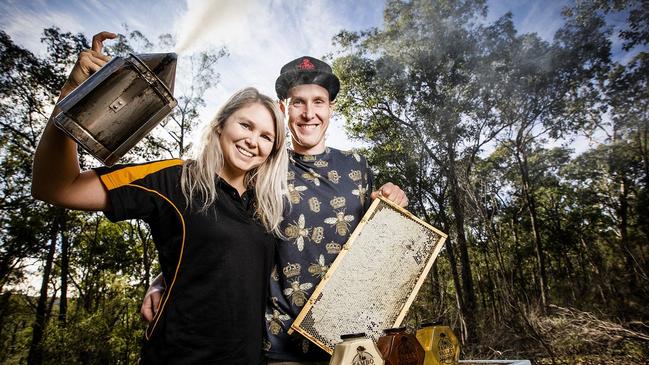
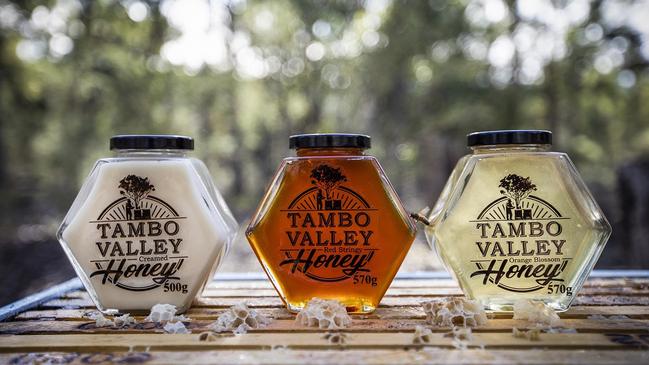
“I think the challenge for regional Victoria now is in the north of the state . . . closing borders, both international and domestic, has really interrupted the flow of casual and transient labour of the pickers and packers the farmers rely on,” RAI chief economist Dr Kim Houghton said.
“Parts of regional Victoria are probably even seeing labour shortages, which are quite hard to deal with these days.”
Dr Houghton said recent Australian Bureau of Statistics (ABS) payroll data showed there were “signs of a turnaround” in regional Victoria.
“The rate of job losses has really slowed and most of the regions have picked up . . . the payroll numbers are a really good sign,” he said.
Job ad postings were also up in regional areas.
Even East Gippsland - which had been devastated by fires and before that drought - was showing some signs of recovery, with employment and its economy “no longer at the absolute bottom of the trough”, Dr Houghton said.
“There is certainly a sense of optimism among growers . . . broadly the farm sector has been much less impacted by COVID than most other sectors,” he said.
Coronavirus work-from-home directives had demonstrated living in regional areas while working in the city was both achievable and cost-effective, making a life in the country more desirable to many Victorians, Dr Houghton said.
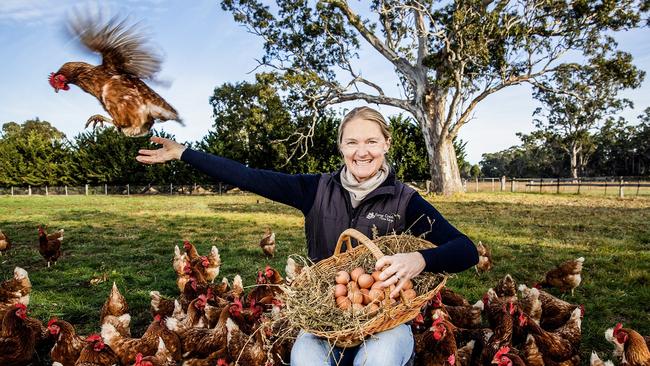
Chair of Agribusiness Australia’s Victorian Council, Patrick McCelland, said primary producers were a resilient lot and had managed COVID-enforced changes to their supply chains and some other operations “incredibly well”.
“When we look at regional communities and agribusinesses and farming, their confidence is actually really high,” Mr McCelland said.
“We’ve had some good rainfall and farmers have been largely very successful. A lot of agribusinesses are actually doing very well.”
East Gippsland Marketing spokeswoman Hayley Hardy said while hopes of Melburnians holidaying and spending winter weekends in the seaside towns of Lakes Entrance, Paynesville, Metung and Marlo had been dashed by the latest coronavirus lockdown, the region’s primary producers showed no signs of slowing.
From free-range egg farmers to dairy farmers, honey producers and fruit and vegetable growers - Gippsland primary producers were busy supplying stores across the state, she said.
“We’ve been experiencing some great support for East Gippsland produce from local people and those outside the area, particularly in the past seven months. This keeps our local economy flowing,” she said.
Forge Creek egg farmer Deb Hahnemann experienced that support first hand, after a social media post about her free-range eggs saw them fly off the shelves and her business become busier than ever.
For Bruthen beekeeper Ben Murphy, who operates Tambo Valley Honey, the recovery will be longer, after losing many of his queen and worker bees to heat and smoke in the fires.
“The immediate loss is evident but it’s the coming seasons that look grim. With so much of our forests burnt . . . we may struggle to find enough nectar and pollen for our bees to feed on. It could take a decade or more,” Mr Murphy said.
But after taking their annual winter break, his bees would get busy again, on fields of golden canola, he said.
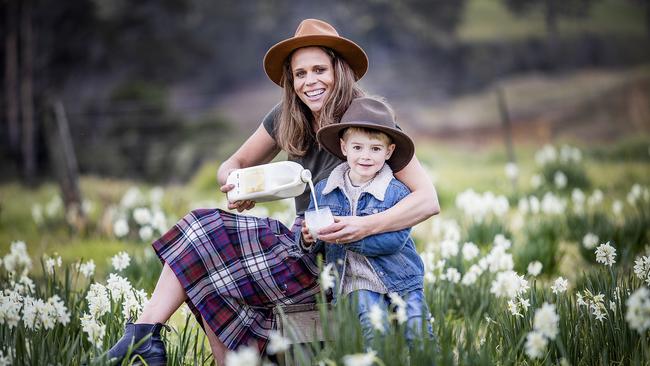
REGIONAL BUSINESSES ON GETTING BACK TO NORMAL
Dairy farmer, Sallie Jones, co-founder of Gippsland Jersey
“We had three years of drought and then we were due to open our dairy factory on January 4 but the bushfire pushed that right back.
“Then we were about to launch a bunch of new products like butter - and go out and market them with events and tastings - but covid took that away. We are OK because we are in some supermarkets and have orders coming through but lots of my friends in tourism and hospitality are doing it tough. We have had rain and have good grass here but we’re certainly not out of the woods yet. We have a huge dam and that’s not full. We’re relying on heavy August rains.”
Tamara Cook, owner of Captains Cove Resort in Paynesville
“We were full in June and it was quite overwhelming really – to realise how much of the bushfire sentiment was still out there. We had people staying with us that had never travelled regionally before but because they couldn’t travel interstate or overseas, they came and explored the beautiful nature we have in this part of the world. Long-term, I think it’s (COVID) actually going to be good for regional Victorian tourism, because hopefully now that people have seen what we have to offer, when they get the chance to travel again, they’ll come back!”
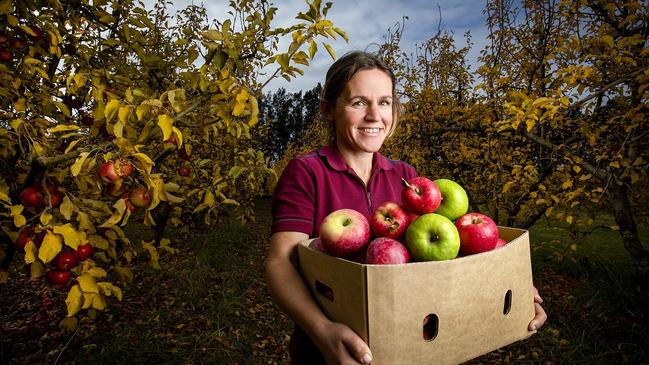
Sally Baldwin, apple grower at Picnic Point Farm, Bairnsdale
“Our harvest is finished and it was a reasonable crop. We are supplying local fruit shops and our farm gate is back open. The impact (of COVID) is not big on us really - we have just kept working. But we have had to change from a mostly cash-based business to cards and buy machines for that. We were impacted by the fires a little bit early this year but not much, they weren’t really close to us.”
Deb Hahnemann runs Forge Creek Free Range Eggs, in Forge Creek
“The fires were a pretty hairy time. They didn’t come right to us but the smoke was so thick and we didn’t know what to expect as far as the impact of smoke inhalation on the hens, but they were all OK. After doing a shout out on social media following the fires, just to try and clear some shelves (of eggs), things really took off and we got busy.
“We’ve gone from strength to strength since then . . . it’s been incredible because there’s been such a demand for eggs during the pandemic and it’s really served to strengthen relationships with our existing customers and given us new opportunities too.”
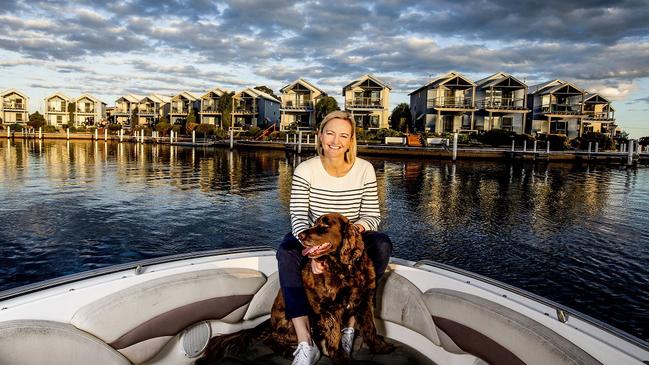
Bruthen beekeeper Ben Murphy of Tambo Valley Honey
“We bought the business in the middle of the drought, which was hard … and the fires have been devastating. We moved our bees back into the region three weeks before the fires came through. We had 450 of our hives in the fire impact area and 220 had their bees completely smothered by the smoke and heat. The rest were also impacted by a mass loss of bees.
“At first, we thought we had got lucky with most of our hives still structurally sound, but on inspection we found a lot of our bees had been cooked by heat inside their hives.
“The immediate loss is evident but it’s the coming seasons that look grim. With so much of our forests burnt across Victoria and right up the Eastern seaboard we may struggle to find enough nectar and pollen for our bees to feed on. It could take a decade or more for a lot of the forest to be of value to beekeepers.
“We breed the majority of our own queen bees instead of buying them. Over the years we have introduced certain genetics into our breeding stock to make sure we have stronger hives all year round.
“A lot of the queens were killed by the heat of the fire and we found most that did survive weren’t laying as well as they should in the months after.
“A healthy queen is the most important part of a hive. If she’s not laying enough eggs per day – and a queen can lay around 2000 eggs a day - then your hive will start to go backwards.
“We are now doing a lot of rebuilding of hives and searching for new places to put our bees.
“The mild autumn meant we were able to work bees a little longer than we normally would and they are now in their slow winter period.
“We will start spring on the canola farms.”

